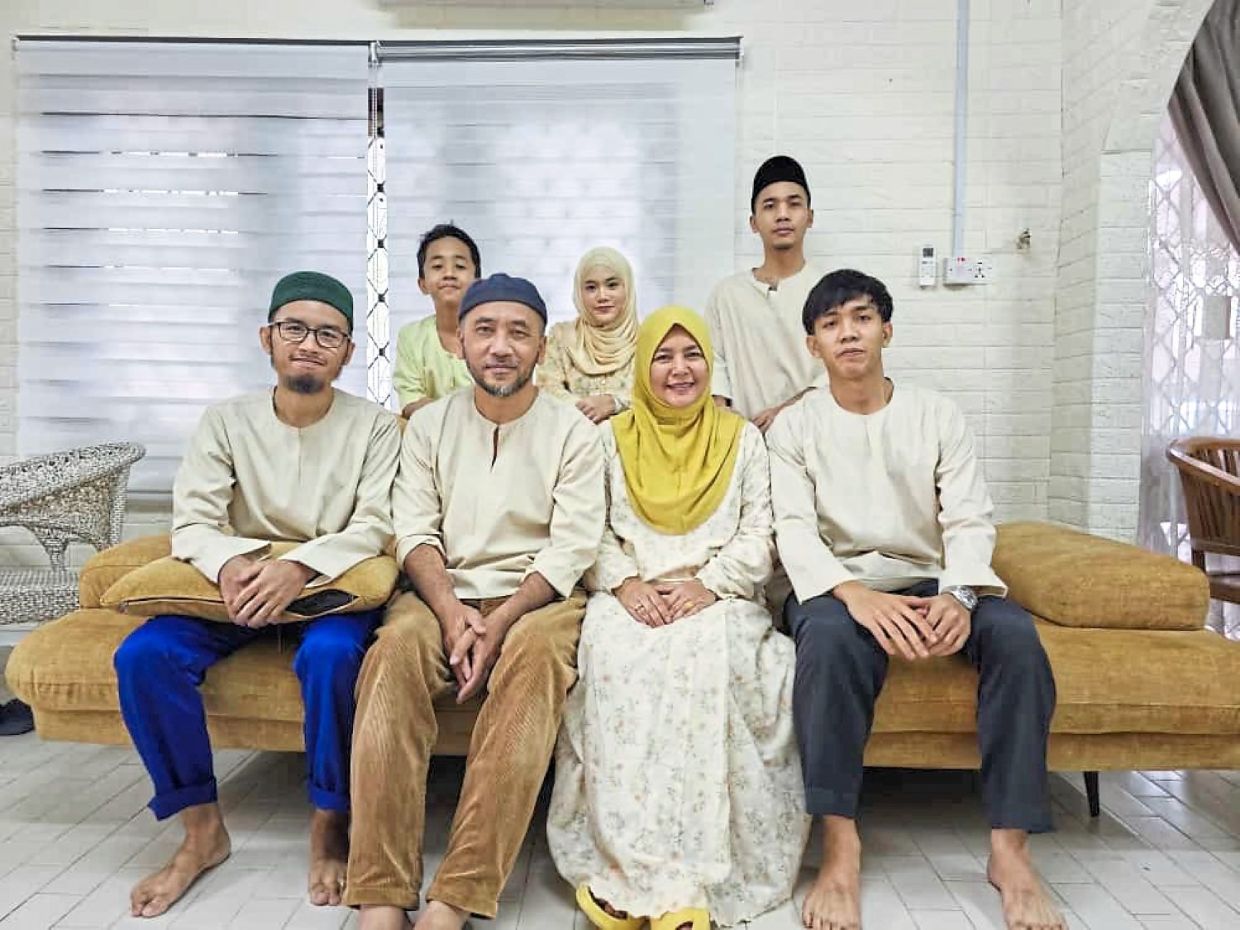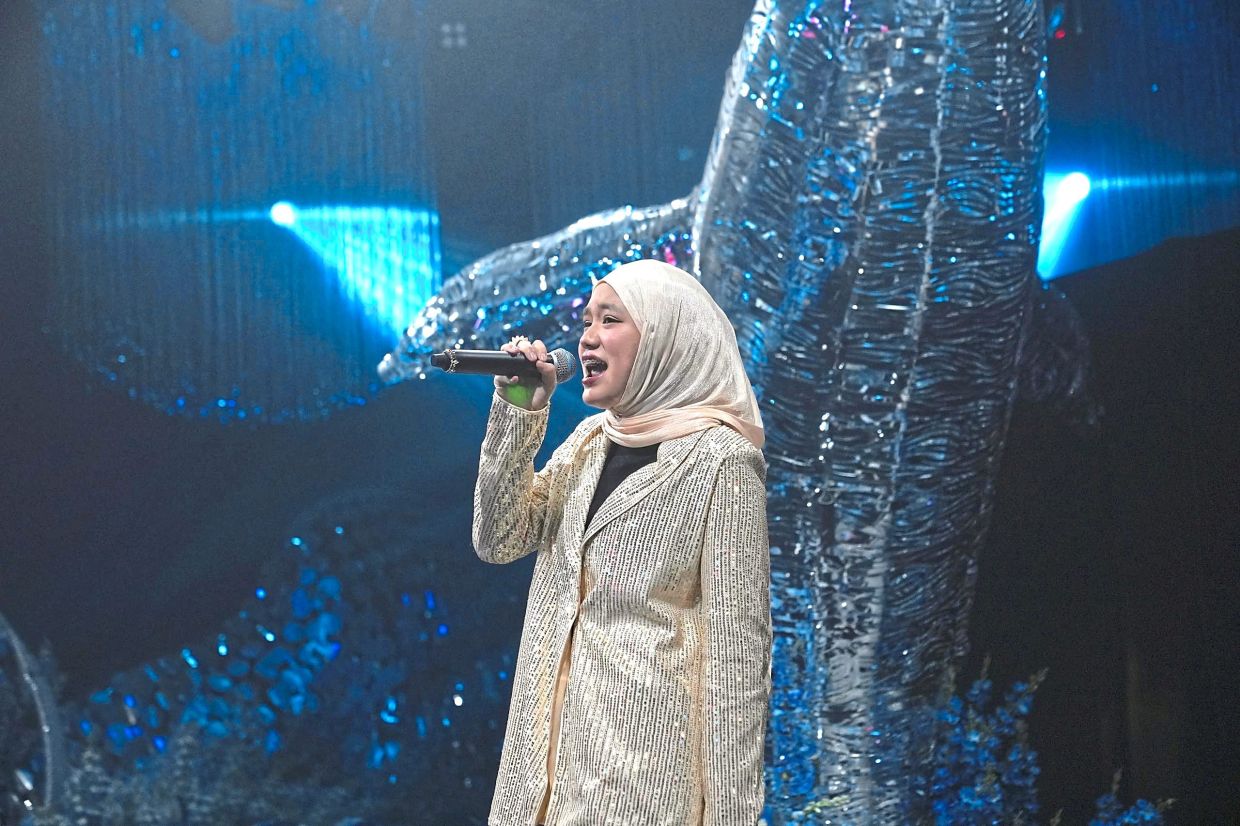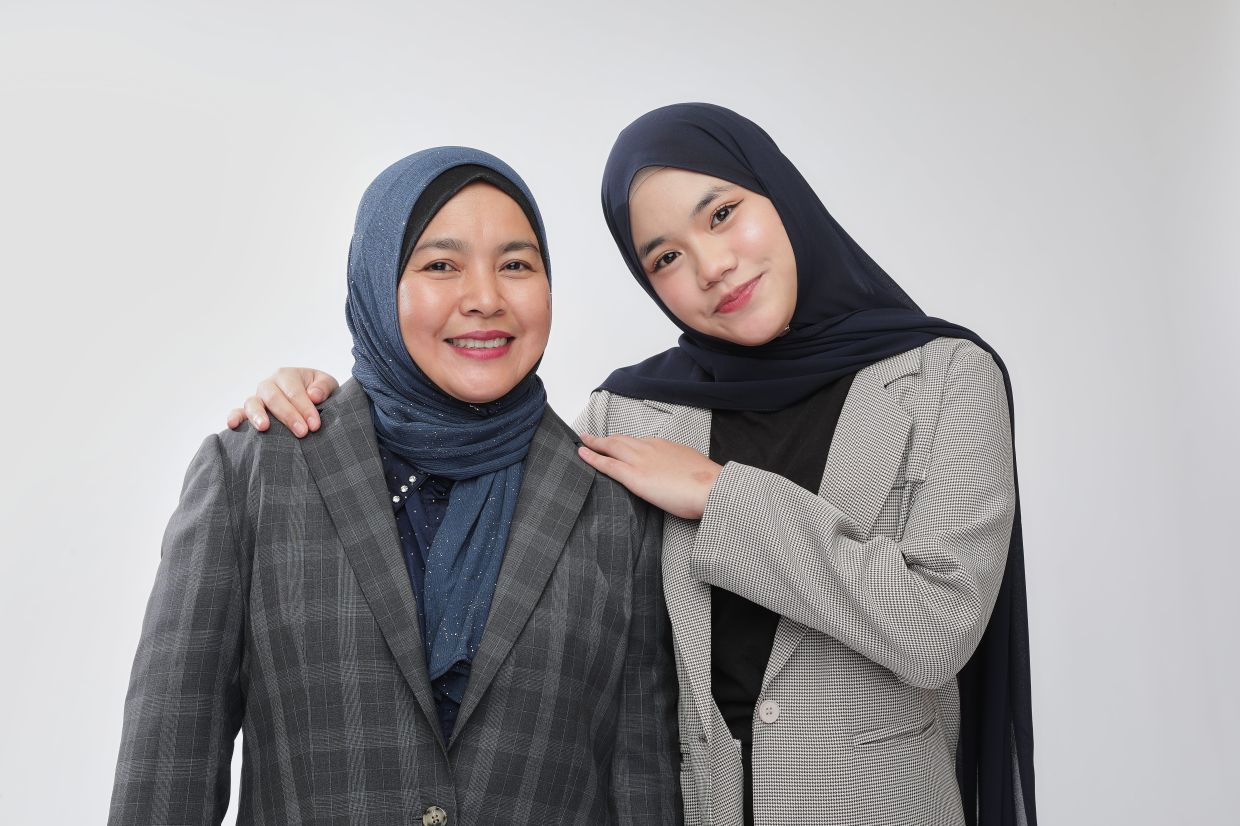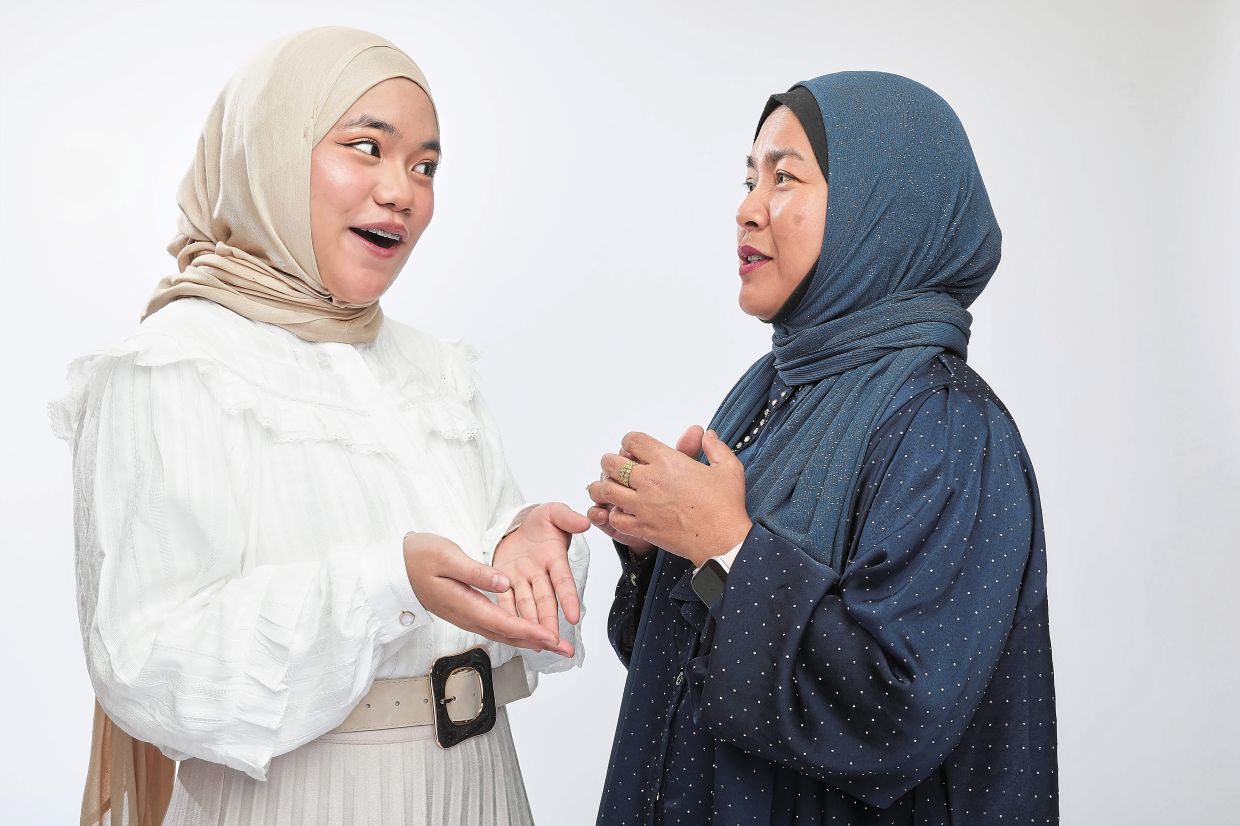In Fatimah Noryyah’s household, conversations often flow between Bahasa Malaysia, English, and Mandarin. Sometimes, they are even sprinkled with Korean and Japanese phrases from K-dramas and J-pop songs.
For Fatimah, 17, and her mother Arba Ali, 53, being multilingual isn’t unusual – it’s just part of being Malaysian.
What makes them stand out though, is that both mother and daughter are fluent in Mandarin – a language many wouldn’t expect from a Malay family.
“It all started with my mum,” says Fatimah, a Form Five student and singer. “She went to a Chinese school when she was young, and because of that, she can speak Mandarin fluently. So, when it was my turn, my uncle encouraged me to do the same.”
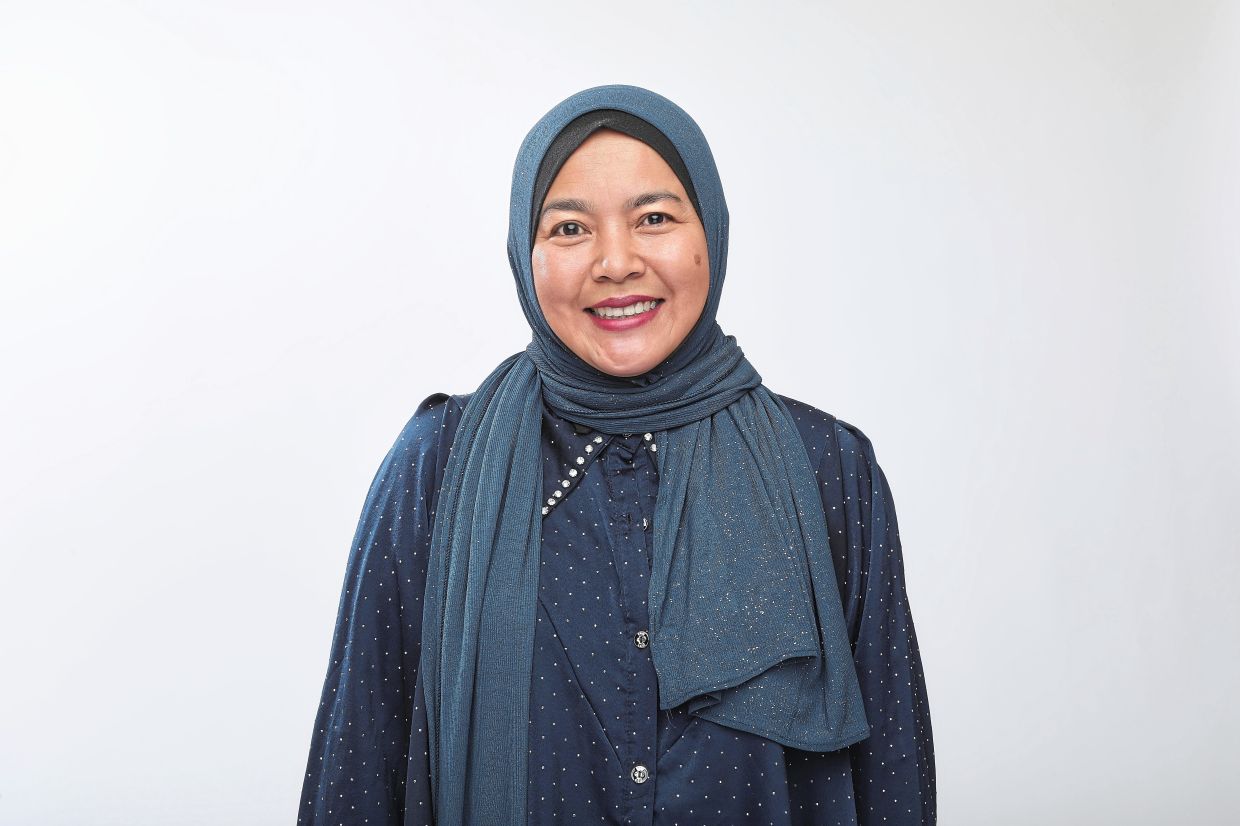
Arba still remembers her first day of Chinese school vividly.
“I was the only Malay student in my class,” she recalls with a smile. “The teacher spoke entirely in Mandarin, and I didn’t understand a single word. But when the teacher cracked a joke and everyone laughed, I laughed too – just to fit in.”
Her journey, she says, wasn’t easy.
“Back in 1979, we didn’t have mobile phones or Google Translate. We had to carry a thick dictionary everywhere. But my Chinese friends in school were really supportive and helpful. That’s how I learned the language.”
Encouraged by her late father and eldest brother, Arba persevered.
“My father told me, 'If you learn more languages, you can survive wherever you go'. That has stayed with me ever since.”
Decades later, she would pass that same gift to her daughter.
For Fatimah, Mandarin has been a constant companion since she was seven.
“I went to a Chinese school from Standard One to Six,” she says. “It was fun because I could practise with my mum at home. Since she also speaks Mandarin, I learnt it faster. It became our little mother- daughter world.”
That “little world” has turned into a secret code between the two of them.
“When we don’t want my brothers to know what we’re talking about,” Fatimah giggles, “we just switch to Mandarin.”
“They’d roll their eyes,” Arba laughs. “But secretly, they’ve picked up a few words too.”
The bond between the pair deepened through this shared language, not just as family, but as fellow learners.
“We practise together,” says Arba. “It’s good exercise for the brain.”
For Fatimah, Mandarin doesn’t just open new friendships; it opens up her world.
When she was nine, she joined a Chinese New Year singing competition.
“One of the judges noticed me and became my vocal mentor. He later brought me to China for a TV show called Let’s Sing Kids,” she says. “That experience changed my life.”
She has since performed in Taiwan’s Jungle Voice, sung viral Mandarin covers online, and gained a following as a young Malay artiste and hijabi who sings in Mandarin.
“It surprises people sometimes,” she says. “But I think it’s beautiful – that a Malay girl can sing in Mandarin and be embraced by others. It shows how we can be united through music.”
Her mother beams with pride. “We’ve travelled to China together. Seeing her sing in Mandarin on stage, it was surreal. I thought, this is what my father meant when he said language helps you survive anywhere.”
But not everyone understands their choice to learn Mandarin. Arba admits that sometimes, she receives odd comments.
Some people have asked if she still recites the Quran because she knows Mandarin. “But that’s totally irrelevant. Learning another language doesn’t change your faith or who you are.”
Fatimah nods in agreement. “We’re still proud Malay Muslims. Speaking Mandarin doesn’t make us less Malay – it makes us more Malaysian.”
Both mother and daughter see language as a bridge, not a barrier.
“Knowing more languages helps promote unity,” says Arba. “That’s how friendships start. That’s how understanding grows.”
Language learning has its funny moments too. Fatimah remembers misreading a word in class – saying “monkey” instead of “singer”. “The whole class laughed,” she recalls, laughing along. “But it made learning more memorable.”
Arba remembers similar experiences from her school days.
“Our teacher would read the textbook and make us repeat it aloud. Repetition and patience – that’s how we learned. I think it made me more disciplined.”
Their shared love for Mandarin has shaped how they see Malaysia’s multicultural landscape.
“We mix languages all the time – BM, Mandarin, English – that’s the beauty of being Malaysian,” says Fatimah.
Arba hopes more parents will consider multilingual education for their children.
“If you know the additional language, use it daily with your kids,” she advises. “If you don’t, send them for classes. Learning languages opens minds and hearts.”
Fatimah has her eyes on a future that blends her two passions – music and multiculturalism. Now preparing for her SPM examinations, she hopes that through her music, she can help promote Malaysia to the world.
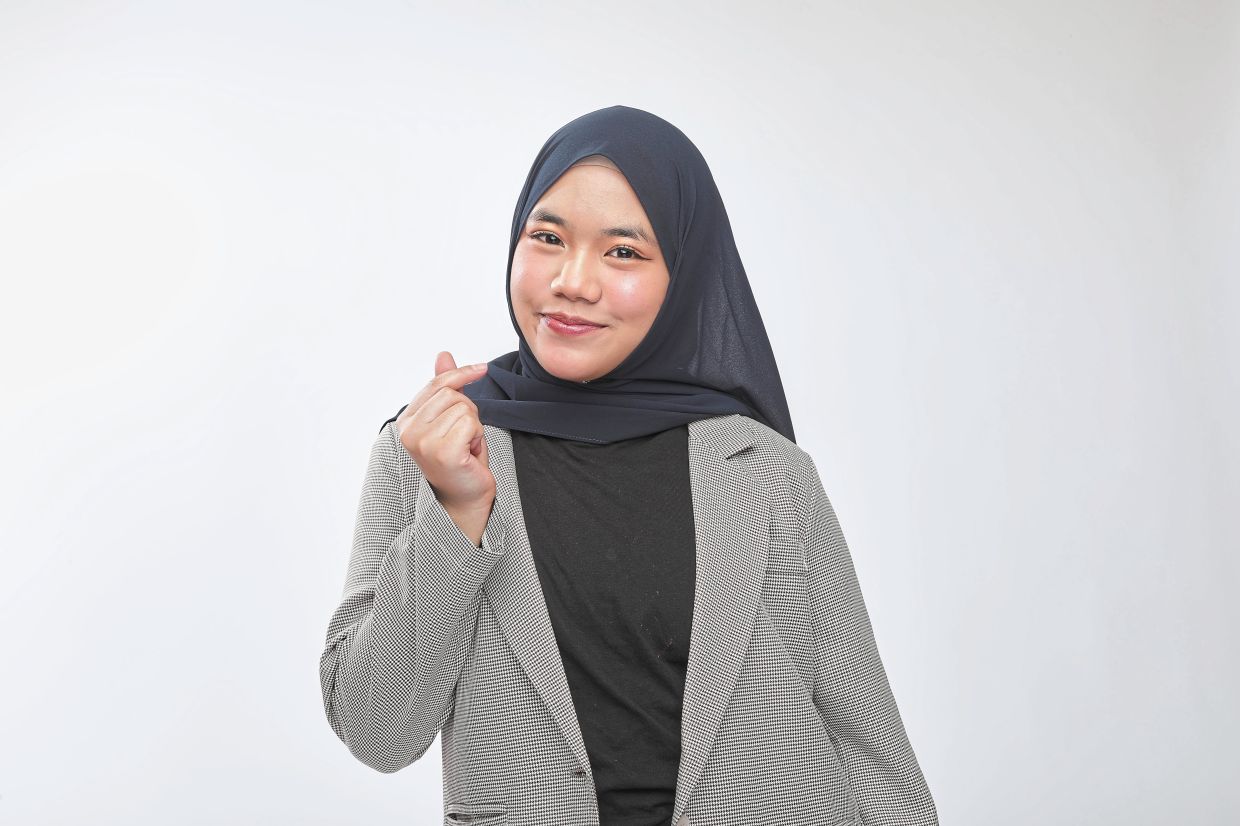
“I believe that singing in different languages is a good way to encourage multiculturalism and unity, and to also encourage more people from other countries to visit Malaysia,” she enthuses.
Whether through conversation or song, both mother and daughter are well-versed in the same message – that language is love in another form.
As Arba puts it: “When you speak someone’s language, you show them respect.”
“You’re telling them, I see you and I understand you. And that’s how harmony begins.”



